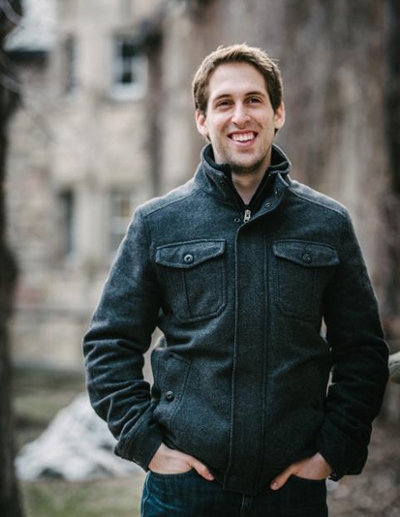
Bringing the student perspective to the table
Tanner Lange has been helping to bring the student experience to one of the Strategic Planning committees
By Marg SheridanA lot of the administrative work at the College of Medicine is done seemingly behind the scenes with the help of committees like the one currently working on updating the college’s Strategic Plan.
The plan, which helps to define our college’s path over the next five years, is being undertaken for the first time since The Way Forward was first implemented in 2013, and involves administrators, faculty, staff, students, and other stakeholders.
One of those involved with the process is Tanner Lange, a third-year MD student, who applied to sit on the Teaching and Learning Working Group. The decision to get involved was an easy one for Lange, who has a background in education and an overall interest in ensuring that the CoM students have a voice at the table.
“One of my degrees prior to coming into medicine was with the College of Education,” explained Lange. “So I have a pretty keen interest in pedagogy and the delivery of content, and I thought this was a good way to utilize my skills (and) advocate for change for students.”
Lange is the only student on this specific committee, which is comprised mostly of faculty and a few administrative staff members, and his role is to bring the student perspective to a committee that deals specifically with how the curriculum is assembled and communicated to the students.
“The big thing was looking over the last two years of the new 2+2 curriculum,” Lange continued. “How has it gone? What changes have been made? So looking at the areas that are doing well, both within our college and compared to colleges across the country, and then in what areas we can improve.
“So my job is bringing the in-class experience and perspective to the discussion.”
That first-hand experience as one of the students who are currently immersed in the curriculum is important, Lange stressed, because sometimes in planning situations like this one the student experience itself can get overlooked, and that can negatively impact learning.
“Often we get really caught up on objectives and higher level strategies,” said Lange. “And I think what I’m trying to bring to the table on behalf of the students is (important) - what it means to be inside the classroom, and how we can structure that to enhance success, improve efficiency for the students, and also maximize the strengths of the cohorts that are going through medical education.”
He explained that it’s hard to use student success as the sole gauge of whether or not the 2+2 curriculum, and medical education in general, is considered a success because it somewhat discounts the hard work of the students to adapt to a new curriculum.
“(Because) regardless of those outcomes, changing our strategic plan is important because it’s not just about how well we do on a national scale compared to other schools, but looking at whether or not – based on our own merit – we need to improve.”
And the strategic plan will aim to help the college navigate the areas that students like Lange have identified as important.
